|
Books Should Be Free Loyal Books Free Public Domain Audiobooks & eBook Downloads |
|
|
Books Should Be Free Loyal Books Free Public Domain Audiobooks & eBook Downloads |
|
Essay/Short Nonfiction |
|---|
|
Book type:
Sort by:
View by:
|
By: G. K. Chesterton | |
|---|---|
 Varied Types
Varied Types
Another delightful and sharply pointed excursion into the topics of the day, and of our day as well, with Gilbert Keith Chesterton. Here he uses his wit and mastery of paradox to bring into focus a number of historical persons who in many ways typify the people who presently shape our world and who in their own right have already shaped Western civilization. These reprinted magazine articles are filled with his good natured wit and devastating ability to use reductio ad absurdum to destroy the popular myths that drive our society at full-speed into, and expose the utter nonsense that underlies, secular humanism. You will come away with yet another new collection of wonderful quotes. | |
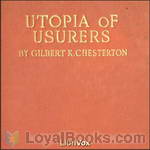 A Utopia of Usurers
A Utopia of Usurers
“Now I have said again and again (and I shall continue to say again and again on all the most inappropriate occasions) that we must hit Capitalism, and hit it hard, for the plain and definite reason that it is growing stronger. Most of the excuses which serve the capitalists as masks are, of course, the excuses of hypocrites. They lie when they claim philanthropy; they no more feel any particular love of men than Albu felt an affection for Chinamen. They lie when they say they have reached their position through their own organising ability... | |
 The Appreciations and Criticisms of the Works of Charles Dickens
The Appreciations and Criticisms of the Works of Charles Dickens
“These papers were originally published as prefaces to the separate books of Dickens in one of the most extensive of those cheap libraries of the classics which are one of the real improvements of recent times. Thus they were harmless, being diluted by, or rather drowned in Dickens. My scrap of theory was a mere dry biscuit to be taken with the grand tawny port of great English comedy; and by most people it was not taken at all–like the biscuit. Nevertheless the essays were not in intention so aimless as they appear in fact... | |
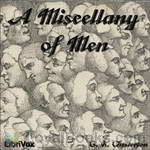 A Miscellany of Men
A Miscellany of Men
Gilbert Keith Chesterton was among the world’s most prolific writers who incorporated relentless logic, wonderful humor, and a clear view of truth into an amazing tool for exposing the foolishness of the policies of the world around him through the device of paradox.It is always great fun, and certainly always a learning experience to read Chesterton. A Miscellany of Men may be his hardest work to define, as it deals with a huge array of issues, using “personal types” as illustration. It would... | |
 Irish Impressions
Irish Impressions
“For the Irish Question has never been discussed in England. Men have discussed Home Rule; but those who advocated it most warmly, and as I think wisely, did not even know what the Irish meant by Home. Men have talked about Unionism; but they have never even dared to propose Union. A Unionist ought to mean a man who is not even conscious of the boundary of the two countries; who can walk across the frontier of fairyland, and not even notice the walking haystack. As a fact, the Unionist always shoots at the haystack; though he never hits it... | |
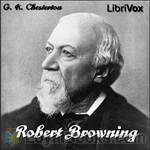 Robert Browning
Robert Browning
There is an old anecdote, probably apocryphal, which describes how a feminine admirer wrote to Browning asking him for the meaning of one of his darker poems, and received the following reply: “When that poem was written, two people knew what it meant–God and Robert Browning. And now God only knows what it means. | |
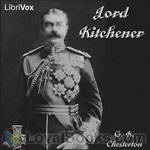 Lord Kitchener
Lord Kitchener
“The paradox of all this part of his life lies in this–that, destined as he was to be the greatest enemy of Mahomedanism, he was quite exceptionally a friend of Mahomedans.” | |
By: Joseph Conrad (1857-1924) | |
|---|---|
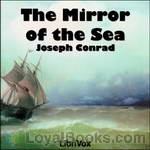 The Mirror of the Sea
The Mirror of the Sea
The Mirror of the Sea is a collection of autobiographical essays first published in various magazines 1904-6. Conrad early in his life earned his bread as a Master Mariner in sailing ships. In his Author’s Note to this work, Conrad states,”Beyond the line of the sea horizon the world for me did not exist….Within these pages I make a full confession not of my sins but of my emotions. It is the best tribute my piety can offer to the ultimate shapers of my character, convictions, and, in a sense, destiny—to the imperishable sea, to the ships that are no more, and to the simple men who have had their day.” | |
By: Jonathan Swift (1667-1745) | |
|---|---|
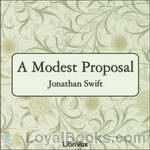 A Modest Proposal
A Modest Proposal
A satirical essay written by one of the most renowned satirists, Jonathan Swift, A Modest Proposal expresses the author’s exasperation with the ill treatment of impoverished Irish citizens as a result of English exploitation and social inertia. Furthermore, Swift ventilates the severity of Ireland’s political incompetence, the tyrannical English policies, the callous attitudes of the wealthy, and the destitution faced by the Irish people. Focusing on numerous aspects of society including government exploitation, reckless greed, hypocrisy, apathy, and prejudice, the essay successfully exemplifies Swift’s satirical skills... | |
By: James Allen (1864-1912) | |
|---|---|
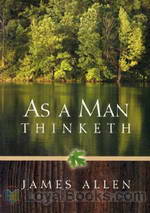 As a Man Thinketh
As a Man Thinketh
“A man is literally what he thinks, his character being the complete sum of all his thoughts,” is one of the quotes from James Allen's classic self help books, As a Man Thinketh. Published in 1902, it provides many more such insightful concepts on the power of thought and its effect on a human being's personality and behavior. This volume is more of a literary essay than a complete book and its title is based on a Biblical proverb, “As a man thinketh in his heart, so is he.” Taking this piece of ancient wisdom further, James Allen explores the far-reaching effects of the inner workings of a person's mind and motivation... | |
By: Walt Whitman (1819-1892) | |
|---|---|
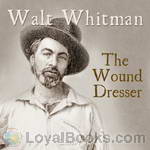 The Wound Dresser
The Wound Dresser
The Wound Dresser is a series of letters written from the hospitals in Washington by Walt Whitman during the War of the Rebellion to The New York Times, the Brooklyn Eagle and his mother, edited by Richard Maurice Burke, M.D., one of Whitman's literary executors. | |
By: Abraham Lincoln (1809-1865) | |
|---|---|
 Lincoln at Cooper Union
Lincoln at Cooper Union
On 27 February 1860, Abraham Lincoln gave this address at the Cooper Union in New York City. When he gave the speech, Lincoln was considered by many to be just a country lawyer. After he gave the speech, he soon became his party’s nominee for president. | |
By: Karl Marx (1818-1883) | |
|---|---|
 Revolution and Counter-Revolution, or: Germany in 1848
Revolution and Counter-Revolution, or: Germany in 1848
Revolution and Counter-Revolution is an account of what happened in Prussia, Austria and other German states during 1848, describing the impact on both middle-class and working-class aspirations and on the idea of German unification. Events in Austria and Prussia are discussed, along with the role of the Poles and Czechs and Panslavism, which Engels was against. | |
By: Jerome K. Jerome (1859-1927) | |
|---|---|
 Told after Supper
Told after Supper
It is Christmas Eve, and the narrator, his uncle and sundry other local characters are sitting round the fire drinking copious quantities of whisky punch and telling ghost stories until bedtime, when… But no, I won’t spoil the fun. This is a little gem: Jerome at his tongue-in-cheek best. | |
 Stage Land
Stage Land
A comic look at the curious habits and customs of the inhabitants of ‘Stage Land’. Dedicated to ‘that highly respectable but unnecessarily retiring individual, of whom we hear so much but see so little, “the earnest student of drama” | |
By: Arnold Bennett (1867-1931) | |
|---|---|
 Literary Taste: How to Form It
Literary Taste: How to Form It
Arnold Bennett describes a method for enjoying literature, and suggests the contents of a comprehensive library. Chapters 1-10 and 14 describe his method for learning to enjoy literature. Chapters 11, 12, and 13 contain detailed lists of the 337 volumes required to complete a comprehensive library of English works. This reading is from the 1913 version at Project Gutenberg, and so does not contain the revisions made by Swinnerton for the 1939 edition, which included authors of the early Twentieth Century. Swinnerton’s revisions are available from Wikipedia. | |
By: John Bunyan (1628-1688) | |
|---|---|
 Miscellaneous Pieces
Miscellaneous Pieces
John Bunyan (November 28, 1628 – August 31, 1688), a Christian writer and preacher, was born at Harrowden (one mile south-east of Bedford), in the Parish of Elstow, England. He wrote The Pilgrim’s Progress, arguably the most famous published Christian allegory. In the Church of England he is remembered with a Lesser Festival on 30 August. Bunyan became a popular preacher as well as a prolific author, though most of his works consist of expanded sermons. In theology he was a Puritan, but there was nothing gloomy about him. The portrait his friend Robert White drew, which has often been reproduced, shows the attractiveness of his true character. | |
By: John Milton (1608-1674) | |
|---|---|
 Areopagitica
Areopagitica
A prose tract or polemic by John Milton, published November 23, 1644, at the height of the English Civil War… Milton, though a supporter of the Parliament, argued forcefully against the Licensing Order of 1643, noting that such censorship had never been a part of classical Greek and Roman society. The tract is full of biblical and classical references which Milton uses to strengthen his argument. The issue was personal for Milton as he had suffered censorship himself in his efforts to publish... | |
By: Helen Keller (1880-1968) | |
|---|---|
 The World I Live In
The World I Live In
The World I Live In by Helen Keller is a collection of essays that poignantly tells of her impressions of the world, through her sense of touch, smell, her imagination and dreams. My hand is to me what your hearing and sight together are to you. In large measure we travel the same highways, read the same books, speak the same language, yet our experiences are different. All my comings and goings turn on the hand as on a pivot. It is the hand that binds me to the world of men and women. The hand is my feeler with which I reach through isolation and darkness and seize every pleasure, every activity that my fingers encounter... | |
By: Ralph Waldo Emerson | |
|---|---|
 Essays, Second Series
Essays, Second Series
Ralph Waldo Emerson (1803 – 1882) was an American essayist, philosopher, and poet, best remembered for leading the Transcendentalist movement of the mid 19th century. His teachings directly influenced the growing New Thought movement of the mid-1800s. | |
 Representative Men
Representative Men
A series of biographical lectures originally published in 1850. Each chapter is a philosophical treatment of the life of an intellectual. The six representatives are Plato, Swedenborg, Shakespeare, Montaigne, Napolean and Goethe. (Introduction by S. Kovalchik) | |
By: Founding Fathers of the United States | |
|---|---|
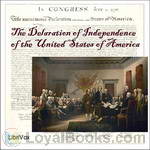 The Declaration of Independence of the United States of America
The Declaration of Independence of the United States of America
Declaration of Independence is the document in which the Thirteen Colonies declared themselves independent of the Kingdom of Great Britain and explained their justifications for doing so. It was ratified by the Continental Congress on July 4, 1776. | |
By: John Muir | |
|---|---|
 Steep Trails
Steep Trails
A collection of Muir's previously unpublished essays, released shortly after his death. "This volume will meet, in every way, the high expectations of Muir's readers. The recital of his experiences during a stormy night on the summit of Mount Shasta will take rank among the most thrilling of his records of adventure. His observations on the dead towns of Nevada, and on the Indians gathering their harvest of pine nuts, recall a phase of Western life that has left few traces in American literature... | |
 Stickeen
Stickeen
A great dog story, a well told tale — the naturalist and adventurer John Muir recounts how he and his companion, a dog named Stickeen, each, alone, confronted and conquered their fears of an icy Alaskan glacier in 1880. | |
By: John Donne (1572-1631) | |
|---|---|
 Devotions upon Emergent Occasions
Devotions upon Emergent Occasions
Devotions upon Emergent Occasions is a 1624 prose work by the English writer John Donne. It is a series of reflections that were written as Donne recovered from a serious illness, believed to be either typhus or relapsing fever. (Donne does not clearly identify the disease in his text.) The work consists of twenty-three parts describing each stage of the sickness. Each part is further divided into a Meditation, an Expostulation, and a Prayer. The seventeenth meditation is perhaps the best-known part of the work... | |
By: Willa Sibert Cather (1873-1947) | |
|---|---|
 Collection Of Stories, Reviews And Essays
Collection Of Stories, Reviews And Essays
Stories and essays by Willa Cather | |
By: Emma Goldman (1869-1940) | |
|---|---|
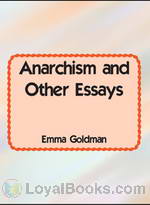 Anarchism and Other Essays
Anarchism and Other Essays
Chicago, May 4, 1886. In the Haymarket region of the city, a peaceful Labor Day demonstration suddenly turns into a riot. The police intervene to maintain peace, but they soon use violence to quell the mob and a bomb is thrown, resulting in death and injuries to scores of people. In the widely publicized trial that followed, eight anarchists were condemned to death or life imprisonment, convicted of conspiracy, though none of them had actually thrown the bomb. A young Russian immigrant, Emma Goldman, had arrived just the previous year in the United States... | |
By: Francis Bacon (1561-1626) | |
|---|---|
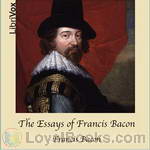 The Essays of Francis Bacon
The Essays of Francis Bacon
Among the many ideas explored in this book are beauty, gardens, honor and reputation, cunning, nobility, friendship and many others. Authored by the man who is credited with having invented the essay form in English, The Essays of Francis Bacon was written over an extended period, ranging from the mid sixteenth century. They were compiled in a single edition in 1597 and later re-written, enlarged and added to in other editions in 1612 and 1625. However, their compelling and insightful quality still appears fresh and appealing to modern day readers... | |
By: Matthew Arnold (1822-1888) | |
|---|---|
 Culture and Anarchy
Culture and Anarchy
Culture and Anarchy is a series of periodical essays by Matthew Arnold, first published in Cornhill Magazine 1867-68 and collected as a book in 1869. The preface was added in 1875. Arnold's famous piece of writing on culture established his High Victorian cultural agenda which remained dominant in debate from the 1860s until the 1950s. According to his view advanced in the book, "Culture [...] is a study of perfection". He further wrote that: "[Culture] seeks to do away with classes; to make the best that has been thought and known in the world current everywhere; to make all men live in an atmosphere of sweetness and light [... | |
By: William James (1842-1910) | |
|---|---|
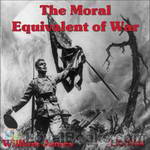 The Moral Equivalent of War
The Moral Equivalent of War
The Moral Equivalent of War, the last public utterance of William James, is significant as expressing the opinions of a practical psychologist on a question of growing popular interest. For the past fifteen years the movement for promoting international peace has been enlisting the support of organizations and individuals the world over. That this is a question on which much may be said for the opposition, James, though a pacificist, admits with his usual fair-mindedness, pointing out that militarism... | |
By: John Ruskin (1819-1900) | |
|---|---|
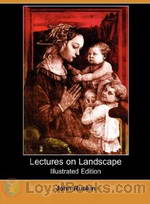 Lectures on Landscape
Lectures on Landscape
A series of lectures on landscape painting delivered at Oxford in 1871, by artist, critic, and social commentator, John Ruskin. | |
By: Thomas de Quincey (1785-1859) | |
|---|---|
 Miscellaneous Essays
Miscellaneous Essays
The Hunter Thompson of the 19th Century, de Quincey is best known for his Confessions of an English Opium Eater (an activity shared with his hero, Samuel Coleridge, much to Wordsworth’s dismay). However, de Quincey’s literary genius is best captured in his essays, and, according to Wikipedia: His immediate influence extended to Edgar Allan Poe, Fitz Hugh Ludlow and Charles Baudelaire, but even major 20th century writers such as Jorge Luis Borges admired and claimed to be partly influenced by his work. | |